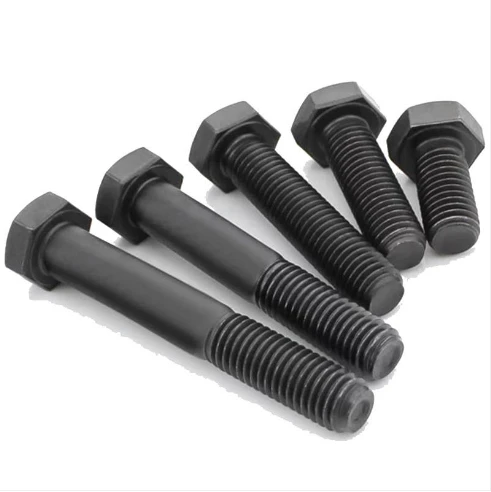washer for bolts and nuts
Jan . 25, 2025 01:13 Back to list
washer for bolts and nuts
Navigating the intricate world of hardware components requires an understanding not just of individual parts like bolts and nuts, but also of the elements that optimize their function — washers. In the realm of mechanical engineering and construction, washers play a pivotal role, ensuring the stability and longevity of assemblies. With firsthand experience, I offer insights grounded in years of expertise, bringing to light the essential nature of washers in conjunction with bolts and nuts.
Authoritative sources within this domain underscore that washers can also serve secondary functions, such as serving as spacers, preloading devices, or locking mechanisms. The humble lock washer, for example, which adds friction to a fastener assembly, prevents accidental loosening in dynamic conditions. Consulting industry standards such as those from the American Society of Mechanical Engineers (ASME) can provide guidance on the appropriate washer to use for specific applications, proving to be an invaluable resource. Trust in washers is ingrained not only in their functional reliability but also in the quality assurance protocols that govern their manufacturing. Reputable manufacturers adhere to stringent quality control measures, ensuring that their washers meet or exceed industry specifications. This provides assurance to engineers and builders alike, allowing them to rely on these components without hesitation. In conclusion, washers are an integral component in any assembly requiring bolts and nuts. Their role might seem secondary, but their impact is profound, bridging the gap between potential failure and sustained success. For professionals seeking to optimize their assemblies, understanding and selecting the right type of washer ensures not only the durability of the structure but also enhances safety standards. Trust and expertise in washers empower builders, making them a cornerstone of both simple and complex projects alike. Always consult with experienced engineers and authoritative standards when making selections to leverage the full potential that washers offer in secure, long-lasting assemblies.


Authoritative sources within this domain underscore that washers can also serve secondary functions, such as serving as spacers, preloading devices, or locking mechanisms. The humble lock washer, for example, which adds friction to a fastener assembly, prevents accidental loosening in dynamic conditions. Consulting industry standards such as those from the American Society of Mechanical Engineers (ASME) can provide guidance on the appropriate washer to use for specific applications, proving to be an invaluable resource. Trust in washers is ingrained not only in their functional reliability but also in the quality assurance protocols that govern their manufacturing. Reputable manufacturers adhere to stringent quality control measures, ensuring that their washers meet or exceed industry specifications. This provides assurance to engineers and builders alike, allowing them to rely on these components without hesitation. In conclusion, washers are an integral component in any assembly requiring bolts and nuts. Their role might seem secondary, but their impact is profound, bridging the gap between potential failure and sustained success. For professionals seeking to optimize their assemblies, understanding and selecting the right type of washer ensures not only the durability of the structure but also enhances safety standards. Trust and expertise in washers empower builders, making them a cornerstone of both simple and complex projects alike. Always consult with experienced engineers and authoritative standards when making selections to leverage the full potential that washers offer in secure, long-lasting assemblies.
Next:
Latest news
-
Leading Metric Wood Screw Companies & Manufacturers
NewsAug.17,2025
-
Top Wire Bolts Suppliers - Quality & Durable Fasteners
NewsAug.15,2025
-
Trusted Wire Bolts Company | Quality Fasteners Supplier
NewsAug.14,2025
-
Reliable Wire Bolts Suppliers & Manufacturers for Global Needs
NewsAug.13,2025
-
High-Quality Bolts for Lawn Mower Handle Supplier
NewsAug.12,2025
-
Leading Phosphated Drywall Screws Supplier | Bulk & Custom Orders
NewsAug.11,2025
